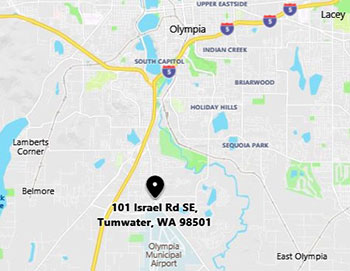Overview
The Washington State Board of Health (Board) is engaged in two separate but related processes involving Washington’s Communicable and Certain Other Diseases rule. The purpose of this document is to clarify the public process and address misunderstanding about the Board’s work.
Public Process #1: Modernizing the Control of Certain Communicable Diseases Rule
Background
The Washington state legislature passed ESHB 1551 in 2020. The law modernizes
the state’s control of communicable diseases with the goal of ending statutory HIV/AIDs exceptionalism, reducing HIV-related stigma, and de-felonizing HIV exposure. ESHB 1551 directs the Board to initiate a rulemaking process to update WAC Chapter 246-100, which includes rules and regulations to protect the health and well-being of the public by controlling communicable and certain other diseases.
Board staff consulted a variety of stakeholders in developing the proposed revisions. Changes to the rule were limited to the implementation of the new state law.
Next Steps
The Board of Health voted to adopt proposed changes to the rule at its January 12 meeting. Board staff have finalized those changes and will soon file an order of adoption with the state’s Code Reviser Office. Once the adopted rule is filed with the State’s Code Reviser, it will go into effect 31 days from the date it is filed.
Myth
The Board reviewed the isolation and quarantine section of rules as part of COVID-19.
Fact
No changes were proposed or adopted to the isolation and quarantine sections of the communicable and certain other diseases rule (WAC 246-100). The updates made to the rule were directed by the state law (ESHB 1551) and part of a broader effort to destigmatize HIV.
Public Process #2: Petitions for Rulemaking
Background
The Board has received seven petitions for rulemaking, which will be considered at its March 9th public meeting.
- Three petitions pertain to the sections of chapter 246-100 WAC that provide for isolation and quarantine procedures. The Board’s authority under RCW 43.20.050(2)(e) requires the Board to adopt rules for the use of isolation and quarantine to protect the health and well-being of the public by controlling communicable diseases. The petitions request the Board to repeal WAC 246-100-040 and 246-100-070. The petitioners say the rules violate the 8th and 9th amendments of the U.S. Constitution, the Bill of Rights, and the Declaration of Independence. The petitioners state that the “vaccine is not effective and it’s toxic.”
- Three petitions for rulemaking regarding WAC 246-100-036, duties and authorities of local health officers. This section outlines the duties and authorities of a local health officer, including instituting disease control measures to prevent the spread of contagious, communicable diseases. Two petitions seek an amendment to WAC 246-100-036 “to require the Local Health Officer to obtain the approval of the local board of health before instituting any disease control measure that deviates from the disease control measures instituted by the Washington State Health Department.” Another petition requests the Board authorize local boards of health to veto local health officer orders.
- The final petition requests a new rule regarding the childcare and school entry requirements (chapter 246-105 WAC). The petition proposes prohibiting the Board from considering adding products under an Emergency Use Authorization and those that have not completed Phase 3 clinical trials.
Next steps
The Board will consider the petitions at its March 9 public meeting. The Board may vote to deny or accept the petitions. If denied, the petitioner may appeal the decision to the governor. If accepted, the Board will direct staff to initiate rulemaking.
Myth
Isolation and quarantine rules under WAC 246-100 could be used to impose “quarantine camps” for people who are not vaccinated.
Fact
Washington’s isolation and quarantine rules give local health jurisdictions authority to request or compel isolation or quarantine for individuals who:
- Are “infected with, exposed to, or contaminated with a communicable disease or chemical, biological, or radiological agent that could spread to or contaminate others,”
- “Pose a serious and imminent risk to the health and safety of others,”
- And do not agree to voluntarily isolate or quarantine.
If an involuntary isolation or quarantine is issued, the individual has the right to petition the superior court for release from the order. Isolation or quarantine can take place in a home, hotel, or public accommodation if other arrangements are not available.
The authority to impose isolation and quarantine is rarely used and is considered a last resort to address an individual who is intentionally putting others at risk. The Board has had authority over regarding quarantine since 1901.


